
Bouillon cubes add flavor to your soups, stews and slow-cooked dishes. Because these cubes are made from dried ingredients, they have a long shelf life and require no refrigeration. When kept in a cool, dry pantry, your cubes can last for a year or more, although the flavor of the cubes may deteriorate over time.
Tiny Cubes with Big Flavor
You'll find bouillon cubes in your grocery store, usually in the soup aisle. The cubes are made from salt and beef, chicken, turkey, fish or vegetable broth that is strained and then dehydrated to concentrate the flavors for use in cooking. Along with the broth, there are also dehydrated herbs and seasonings to give the broth flavor. Because all of the ingredients are dehydrated and contain no water, refrigeration or freezing isn't necessary to maintain the freshness and usability of the cubes. All dehydrated meats and vegetables last up to one year while still maintaining their flavor, according to the Virginia Cooperative Extension.
Water: The Enemy of Bouillon Cubes
How you store your bouillon cubes will determine their shelf life because water and humidity can cause the cubes to spoil. Once exposed to air and moisture, your bouillon cubes may become harder to dissolve, darken in color or the flavor may become unpleasant tasting, according to the EatByDate website. To prevent spoilage and prolong the life of your cubes, keep them in their original packaging until you plan to use them or store them in air-tight plastic bags or containers to keep them dry. No moisture means that there is no way for bacteria and other microorganisms that can cause spoilage to flourish.
Does the Expiration Date Matter?
Manufacturers determine the expiration date on their products, including the bouillon cubes, based on the optimum freshness and flavor. For this reason, you can still use your bouillon cubes up to a year after this date if they have been kept free of moisture, although they may not taste as good as a fresher product. Once you rehydrate the cubes with water to make your broth, though, the shelf life is reduced to four to five days and the resulting broth must be refrigerated because of the addition of moisture. Any other products, such as poultry and stews, that you make with the bouillon will only last as long as the ingredients you include with the shortest shelf life.
Pantry Pests and Contamination
Bouillon cubes aren't immune to damage from pests such as insects, which may be attracted to them because of the dried meats, spices and herbs they contain. You need to discard your cubes if you notice any pantry pests around your cubes, because they can contaminate them. If you have used part of a bouillon cube, store the other in an air-tight bag to keep it safe from pests and moisture. Low-sodium bouillon or organic bouillon cubes may be more prone to these pests and to spoilage because of the lack of preservatives and salt in them.
Related Articles

How to Keep Chives Fresh

Calories in Cheese Cubes
The Difference Between Broth & Bouillon ...

How to Rehydrate Dried Herbs

How to Know if Beef Cubes Are Bad
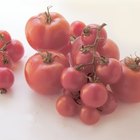
How to Freeze Stewed Tomatoes

How to Freeze Romanesco

What if You Don't Cook Chickpeas Long ...

How to Store Alfalfa Sprouts

How to Freeze Homemade Vegetable Stock

Can You Freeze Spices & Herbs for ...
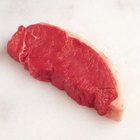
How to Slice a Roast for Jerky
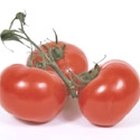
How to Store Tomatoes
Can You Freeze Capers?

How to Cook Raw Chickpeas or Garbanzo ...

Can You Freeze Homemade Calzones?
Can You Freeze Shish Kabobs?

How to Store Brussels Sprouts
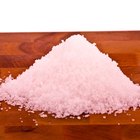
How to Use Sea Salt for Canning
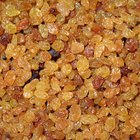
How to Prepare Water Kefir to Drink
References
- EatByDate: How Long Does Chicken Broth Last?
- Still Tasty: Bouillon Cubes or Granules, All Types (Including Beef, Chicken, Turkey, Vegetable, Fish) -- Unopened or Opened Package
- Virginia Cooperative Extension: Food Storage Guidelines For Consumers
- U.S. Food and Drug Administration: CPG Sec. 567.300 *Bouillon, Bouillon Cubes, Granulated Bouillon*
- Greater Pittsburgh Community Food Bank: Shelf Life of Food Bank Products
- American Journal of Agricultural and Biological Sciences: Meat Spoilage Mechanisms and Preservation Techniques: A Critical Review
- Virginia Cooperative Extension: Using Dehydration to Preserve Fruits, Vegetables, and Meats
- Texas Agricultural Extension Service: Safe Home Food Storage
- University of Nebraska-Lincoln: Managing Pantry Pests
Resources
Writer Bio
Based in Las Vegas, Susan Paretts has been writing since 1998. She writes about many subjects including pets, finances, crafts, food, home improvement, shopping and going green. Her articles, short stories and reviews have appeared on City National Bank's website and on The Noseprint. Paretts holds a Master of Professional Writing from the University of Southern California.
Photo Credits
Jupiterimages/Photos.com/Getty Images